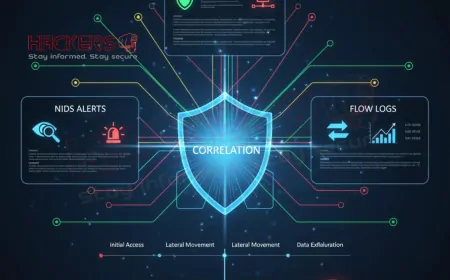How Cybersecurity Can Become a Tool of National Soft Power
In a world increasingly shaped by digital connectivity, nations are seeking innovative ways to enhance their global influence. Soft power, the ability to attract and persuade others through culture, values, and diplomacy, is a critical tool for international leadership. Cybersecurity, often seen as a technical necessity, is emerging as a powerful instrument of soft power. By demonstrating expertise, sharing resources, and fostering trust in digital systems, nations can build alliances, promote stability, and enhance their global reputation. This blog post explores how cybersecurity can be leveraged as a tool of national soft power, offering practical strategies for countries to strengthen their influence while protecting the digital world.

Table of Contents
- Understanding Soft Power and Cybersecurity
- Opportunities for Cybersecurity as Soft Power
- Strategies to Leverage Cybersecurity for Soft Power
- Tools and Initiatives for Cybersecurity Diplomacy
- Challenges in Using Cybersecurity as Soft Power
- Conclusion
- Frequently Asked Questions
Understanding Soft Power and Cybersecurity
Soft power, a term coined by Joseph Nye, refers to a nation’s ability to influence others through attraction rather than coercion. It relies on cultural appeal, ideological alignment, and cooperative initiatives. Cybersecurity, at its core, protects digital systems from threats like hacking, data breaches, and cyberattacks. While traditionally viewed as a defensive measure, cybersecurity can also project a nation’s values, such as innovation, trust, and collaboration.
A nation with strong cybersecurity capabilities can share expertise, lead international standards, and support weaker nations, fostering goodwill and influence. For example, offering training programs or helping allies recover from cyberattacks demonstrates leadership and builds trust. By positioning cybersecurity as a tool of diplomacy, nations can enhance their global standing while promoting a safer digital environment.
Opportunities for Cybersecurity as Soft Power
Cybersecurity offers unique opportunities to enhance national soft power. By showcasing expertise and fostering cooperation, nations can build influence in several ways:
- Global Leadership: Leading international cybersecurity initiatives, like setting standards for data protection, positions a nation as a trusted authority.
- Capacity Building: Offering training or resources to developing nations helps them secure digital systems, creating gratitude and partnerships.
- Crisis Response: Assisting allies during cyberattacks, such as ransomware incidents, demonstrates reliability and strengthens alliances.
- Innovation Sharing: Developing and sharing open-source cybersecurity tools promotes a nation’s technological prowess and fosters goodwill.
- Cultural Appeal: Promoting values like privacy, transparency, and digital safety aligns with global demands, enhancing a nation’s reputation.
Strategies to Leverage Cybersecurity for Soft Power
Nations can transform cybersecurity into a soft power tool through deliberate, accessible strategies. Below are practical approaches:
Develop International Training Programs
Create cybersecurity training programs for other nations, focusing on practical skills like phishing detection and network security. Host workshops or online courses in collaboration with international organizations to build capacity and trust.
Lead Global Cybersecurity Standards
Contribute to international frameworks, like the Budapest Convention on Cybercrime, to set global norms. By advocating for fair, transparent standards, a nation can gain respect as a leader in digital governance.
Share Open-Source Tools
Develop and distribute free cybersecurity tools, such as encryption software or antivirus programs, to support smaller nations or organizations. This showcases innovation and encourages adoption of a nation’s technologies.
Support Cyber Incident Response
Establish rapid-response teams to assist allies during cyberattacks. Providing expertise or resources during crises, like data breaches, builds strong diplomatic ties.
Promote Digital Literacy Campaigns
Launch global campaigns to educate citizens about safe internet practices, such as using strong passwords or avoiding scams. These campaigns project a nation’s commitment to a secure, inclusive digital world.
Foster Public-Private Partnerships
Collaborate with tech companies to develop cybersecurity solutions and share them internationally. These partnerships enhance a nation’s reputation as a hub of innovation and cooperation.
Tools and Initiatives for Cybersecurity Diplomacy
Several tools and initiatives can support nations in using cybersecurity as soft power. The table below highlights accessible options:
| Tool/Initiative | Purpose | Cost |
|---|---|---|
| VeraCrypt | Encrypts data for secure storage | Free |
| Malwarebytes | Antivirus to protect against malware | Free (basic) / Paid plans available |
| Cybersecurity Training Platforms (e.g., TryHackMe) | Provides hands-on cybersecurity training | Free (basic) / Paid plans available |
| Global Cyber Alliance Toolkit | Offers free tools for small organizations | Free |
| FIRST (Forum of Incident Response Teams) | Facilitates international cyber incident response | Membership-based (varies) |
Challenges in Using Cybersecurity as Soft Power
While cybersecurity offers significant soft power opportunities, challenges must be addressed to maximize its impact:
- Resource Constraints: Developing nations may lack the infrastructure to adopt shared tools or training, limiting cooperation.
- Trust Issues: Some nations may suspect hidden motives in cybersecurity assistance, hindering partnerships.
- Evolving Threats: Rapidly changing cyber threats require constant updates to tools and training, which can strain resources.
- Coordination Barriers: Aligning international efforts across different legal and cultural systems can be complex.
- Privacy Concerns: Sharing cybersecurity expertise may raise concerns about surveillance or data misuse, requiring transparent policies.
Conclusion
Cybersecurity is more than a technical necessity; it’s a powerful tool for national soft power. By leading global standards, sharing tools, and supporting allies during cyber crises, nations can build trust, foster alliances, and enhance their global influence. Strategies like international training, open-source tools, and digital literacy campaigns make this approach accessible even for resource-constrained countries. Despite challenges, such as trust issues and evolving threats, a commitment to cybersecurity diplomacy can position a nation as a leader in the digital age, promoting a safer, more connected world.
Frequently Asked Questions
What is soft power in the context of cybersecurity?
Soft power is a nation’s ability to influence others through attraction, like sharing cybersecurity expertise to build trust and alliances.
How can cybersecurity enhance national influence?
By sharing tools, training, or crisis support, nations can demonstrate leadership and foster goodwill, strengthening global ties.
What is a cyberattack?
A cyberattack is an attempt to harm digital systems, like hacking, data theft, or disrupting networks, often targeting sensitive data.
Can small nations use cybersecurity for soft power?
Yes, small nations can share free tools or training, building influence without needing large budgets.
What is encryption, and why is it important?
Encryption scrambles data to protect it from unauthorized access, ensuring secure communication and storage.
How does training others improve soft power?
Training builds capacity in other nations, fostering gratitude and partnerships that enhance a nation’s reputation.
What is a phishing scam?
Phishing scams use fake messages to trick users into sharing passwords or clicking malicious links, compromising security.
Can open-source tools be effective for soft power?
Yes, sharing tools like VeraCrypt promotes innovation and goodwill, encouraging adoption of a nation’s solutions.
How can nations respond to cyber crises?
Offer rapid-response teams or expertise to help allies recover from attacks, strengthening diplomatic ties.
What is a data breach?
A data breach occurs when hackers access sensitive information, like personal or government data, due to weak security.
Why is trust important in cybersecurity diplomacy?
Trust ensures nations accept assistance without fear of hidden motives, fostering stronger partnerships.
How can digital literacy campaigns help?
Campaigns teach safe internet practices, projecting a nation’s commitment to a secure digital world.
Do nations need expensive tools for cybersecurity?
No, free tools like Malwarebytes or Global Cyber Alliance kits are effective for building soft power.
How do we overcome resource constraints?
Use open-source tools and partner with NGOs or tech companies to access affordable resources.
What is the Budapest Convention?
It’s an international treaty on cybercrime, setting standards for cooperation and security that nations can lead.
Can cybersecurity diplomacy cause privacy concerns?
Yes, but transparent policies and ethical practices can address concerns and build trust.
How do we stay updated on cyber threats?
Follow global cybersecurity forums, like FIRST, and share updates with allies to stay prepared.
Do public-private partnerships help?
Yes, collaborating with tech companies enhances innovation and shares resources for global impact.
How can nations lead in cybersecurity?
Contribute to global standards, share tools, and support weaker nations to establish leadership.
What’s the first step to use cybersecurity as soft power?
Start by offering free training or tools to allies, building trust and influence.
What's Your Reaction?










































































